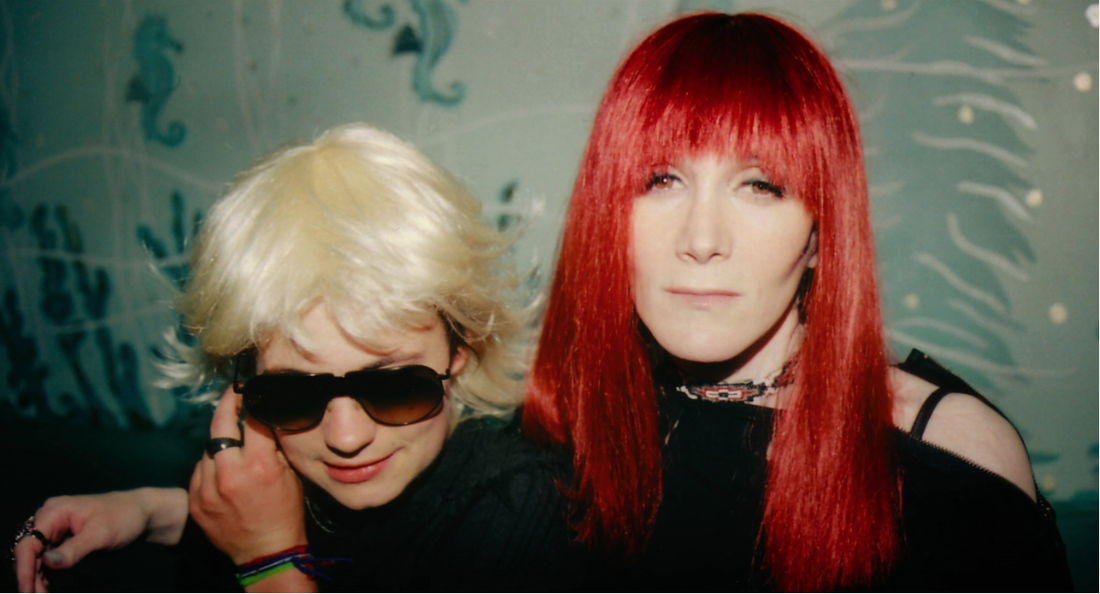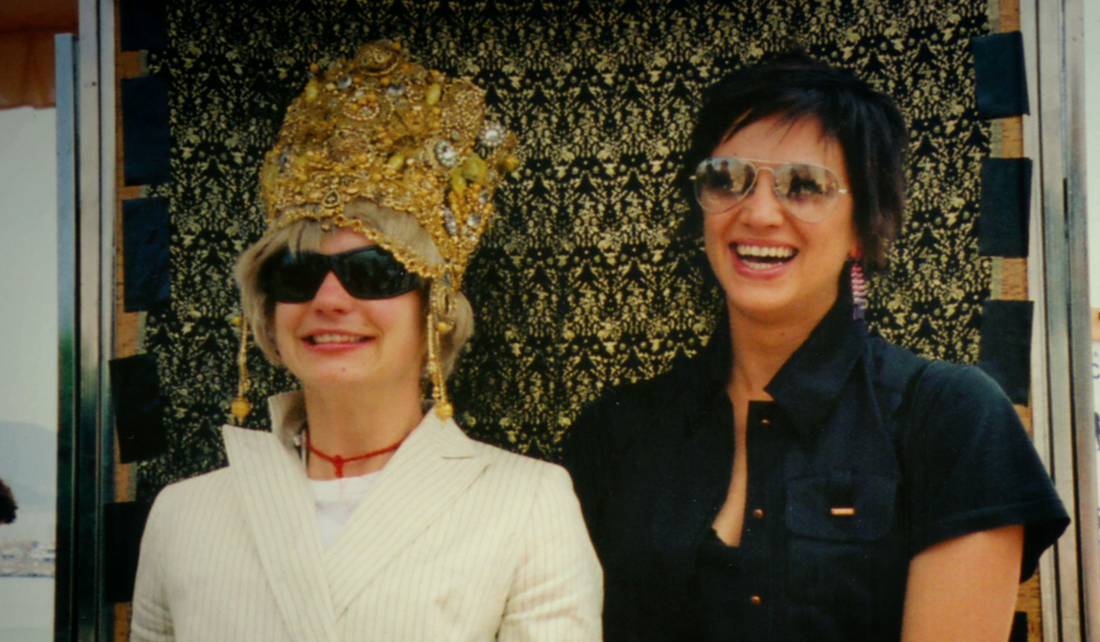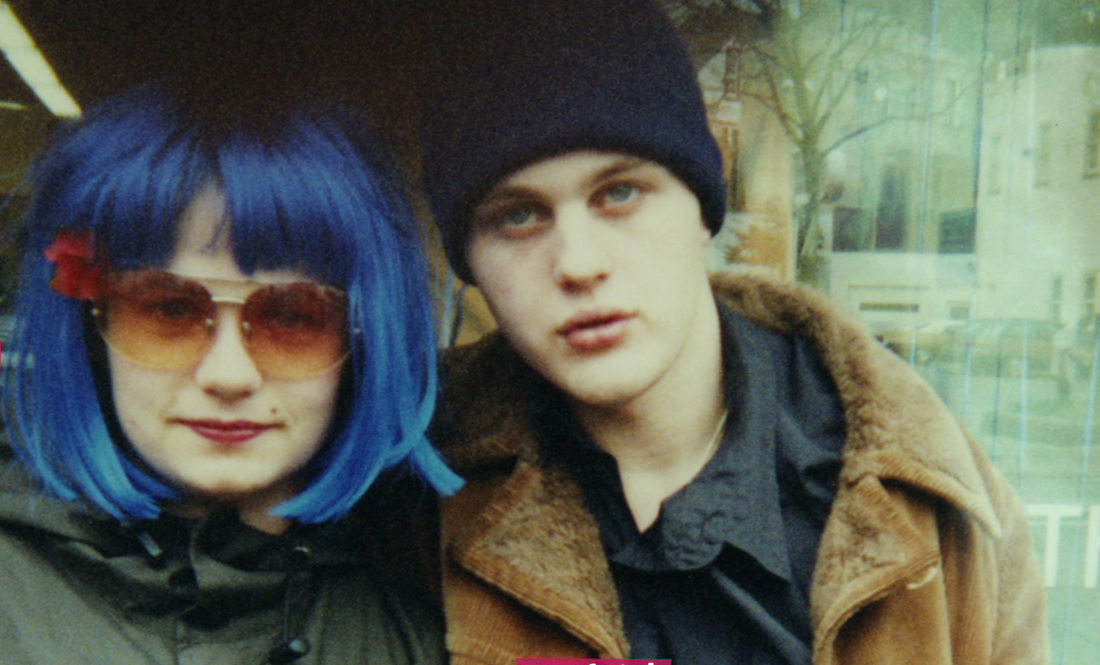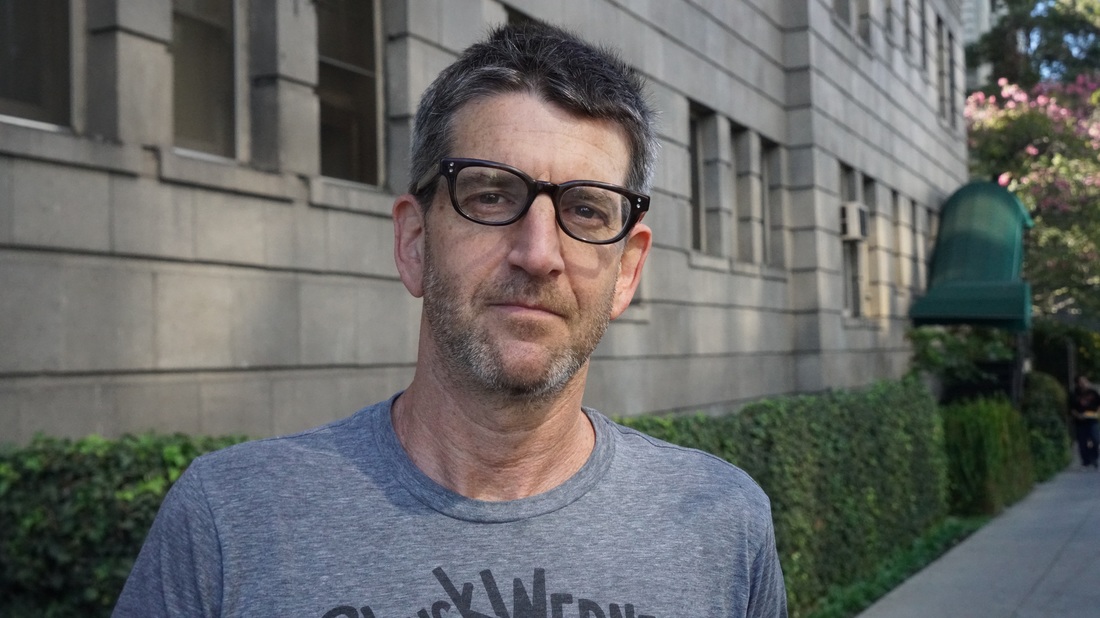|
Director Jeff Feuerzeig defends his film about author at heart of famous literary scam
[This article has been updated to correct a caption and to recast several paragraphs explaining the scandal]
The New York Times isn't doing any favors to director Jeff Feuerzeig -- unless you're of the mind that all publicity is good publicity.
First the Times published a negative review of Feuerzeig's new documentary, Author: The JT LeRoy Story. Now it has published a piece that questions Feuerzeig's ethics -- particularly his decision to incorporate audio of telephone conversations that were recorded secretly by the subject of his film, writer Laura Albert. This is downright evil and disturbing.
Feuerzeig relied on immense quantities of archival material provided to him by Albert for his film, which explores one of the great literary frauds of all time. The tale began in the 1990s with the publication of autobiographical works by a young male author named JT LeRoy, who purported to be a prostitute and son of a truck stop hooker and junkie.
LeRoy's books became a sensation and were embraced by celebrities like Bono, Tom Waits, Winona Ryder and director Gus Van Sant, some of whom regularly engaged in telephone chats with the young writer. They did not know the person they were talking to was actually a 40-year-old woman, Laura Albert, pretending to be LeRoy. It wasn't until 2006 that a Times reporter exposed JT LeRoy as a "hoax" and Albert as the real author.
SHARE THIS:
Feuerzeig has repeatedly said his film was not intended to be an objective investigation into the scandal, but rather a subjective portrait of Albert that allows her to explain the psychological motives behind her deceit. He said as such it was appropriate to use portions of the surreptitiously recorded phone calls to illustrate Albert's mindset as the subterfuge was unfolding in the 1990s and early 2000s.
However, the Times piece on Sunday, written by Colin Moynihan, suggests Feuerzeig may have crossed an ethical line by including excerpts of those phone calls with celebrities, which were apparently recorded without their knowledge or consent. Moynihan writes, "...A documentary that includes calls with authors and celebrities recorded secretly by the hoax’s perpetrator, Laura Albert, has reopened old wounds and raised questions about whether documentary films, increasingly seen as potent forms of journalism, should adhere to the same standards as other types of reporting." The article includes a quote from actress/director Asia Argento, one of the celebrities taken in by the fraud. The film suggests Argento became romantically involved with a person she thought to be JT LeRoy, who was in fact Albert's sister-in-law Savannah Knoop. Knoop spent years pretending to be LeRoy in public. Argento denied to the Times that a romantic relationship ever took place and reacted with horror that Albert had secretly recorded their conversations and that Feuerzeig had used them in his film. "This is downright evil and disturbing," Argento told the Times. "I'm very angry."
The Times piece continues, "Although it is common journalistic practice to check factual assertions and question any that could be defamatory, Ms. Argento said she was not given the chance to counter Ms. Albert."
But Feuerzeig told the Times he did give Argento an opportunity to respond. "Mr. Feuerzeig said that he had invited Ms. Argento to be interviewed, so she could reply to Ms. Albert, but had not told her about Ms. Albert’s remarks or the recorded calls because the film was not yet edited," Sunday's article stated. Writer Dennis Cooper -- another of LeRoy's phone confidantes -- told the Times he found it "problematic" that portions of the recordings were used in the documentary. Cooper was interviewed on camera for the film, but he told the Times, "Jeff Feuerzeig didn’t inform me that the recordings existed when he interviewed me, which seems very strange to me in retrospect.” Feuerzeig reportedly told the Times that when he interviewed Cooper he didn't yet know he would be making use of Cooper's phone conversations with LeRoy. Feuerzeig reiterated to the Times what he has told other outlets including Nonfictionfilm.com -- that his film is "a subjective telling by [Albert] of her life."
The overall thrust of the Times article seems to be to raise doubts about the director's decision to largely tell the story from Laura Albert's point of view. Given that she has proved a master manipulator in the past, it may be worth asking whether she was using Feuerzeig to rehabilitate her image.
During an interview in late August, Nonfictionfilm.com asked Feuerzeig precisely that question -- whether he was concerned about the possibility of being manipulated by the author. He replied, "I made that choice to hear Laura Albert's version of the story and what I came to learn in our seven or eight days together is she was 100-percent forthcoming about all of her deceit... Nothing was off the table. And our agreement going in was I had final cut. She couldn't change a frame... It's largely told by Laura and I stand by that. I love subjectivity. That's my biggest influence is the New Journalism... I believe through subjective storytelling documentary can become nonfiction filmmaking and more cinematic and arrive at what [Werner] Herzog calls "the ecstatic truth."
The Times review notwithstanding, critics have mostly praised Feuerzeig's work. According to rottentomatoes.com 85-percent of the nearly 50 reviews it aggregated were positive. And 86-percent of moviegoers were reported to have liked the film.
Author: The JT LeRoy Story is currently playing in New York and San Francisco, and at both the ArcLight Hollywood and the Landmark in West Los Angeles. It expands this Friday to multiple cities, including Chicago, Washington DC, Seattle, Berkeley, Calif. and more. |
AuthorMatthew Carey is a documentary filmmaker and journalist. His work has appeared on Deadline.com, CNN, CNN.com, TheWrap.com, NBCNews.com and in Documentary magazine. |
- Home
- News
- Videos
-
Galleries
- 2019 Tribeca Film Festival
- Full Frame Documentary Film Festival
- 2019 SXSW Film Festival
- SXSW 2018 Gallery
- 2019 Sundance Film Festival
- Outfest 2018 Photo Gallery
- Outfest 2017
- Sundance 2018 Photos
- 2017 LA Film Festival
- 2017 Cannes Film Festival
- Tribeca Film Festival 2017
- SXSW 2017 Gallery
- 2017 Berlin Film Festival
- Sundance 2017 Gallery
- 2016 Los Angeles Film Festival
- Cannes Film Festival 2016
- SXSW 2016 Gallery
- Berlinale 2016 Gallery
- Sundance 2016 Gallery
- Filmmaker Gallery
- About
- Contact
Proudly powered by Weebly
- Home
- News
- Videos
-
Galleries
- 2019 Tribeca Film Festival
- Full Frame Documentary Film Festival
- 2019 SXSW Film Festival
- SXSW 2018 Gallery
- 2019 Sundance Film Festival
- Outfest 2018 Photo Gallery
- Outfest 2017
- Sundance 2018 Photos
- 2017 LA Film Festival
- 2017 Cannes Film Festival
- Tribeca Film Festival 2017
- SXSW 2017 Gallery
- 2017 Berlin Film Festival
- Sundance 2017 Gallery
- 2016 Los Angeles Film Festival
- Cannes Film Festival 2016
- SXSW 2016 Gallery
- Berlinale 2016 Gallery
- Sundance 2016 Gallery
- Filmmaker Gallery
- About
- Contact





 RSS Feed
RSS Feed